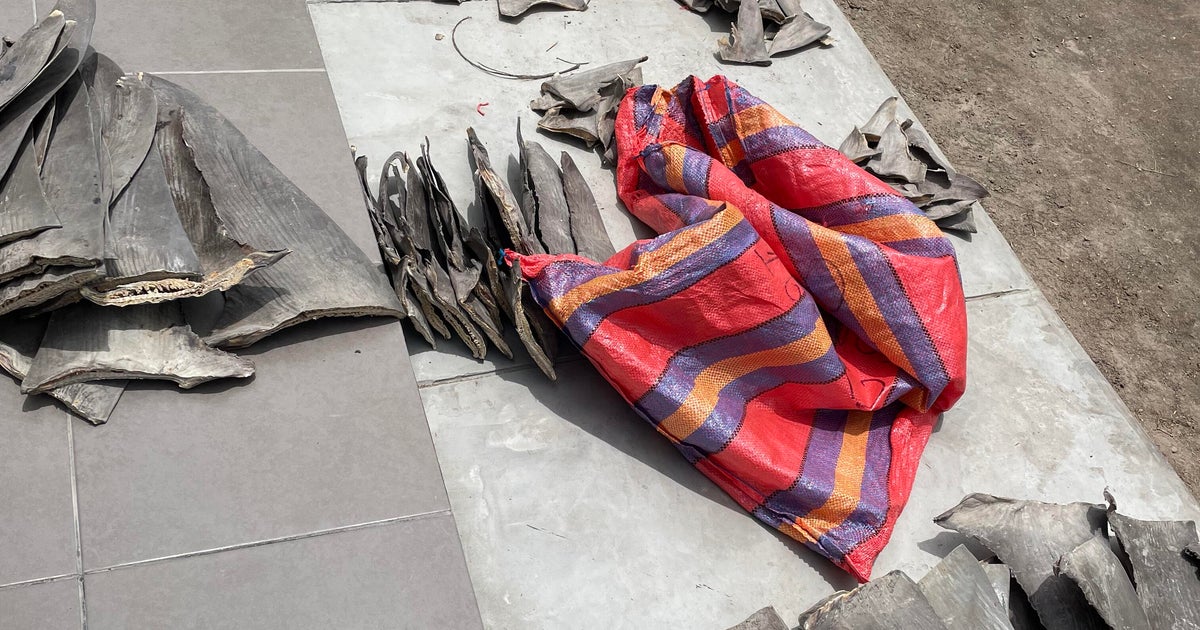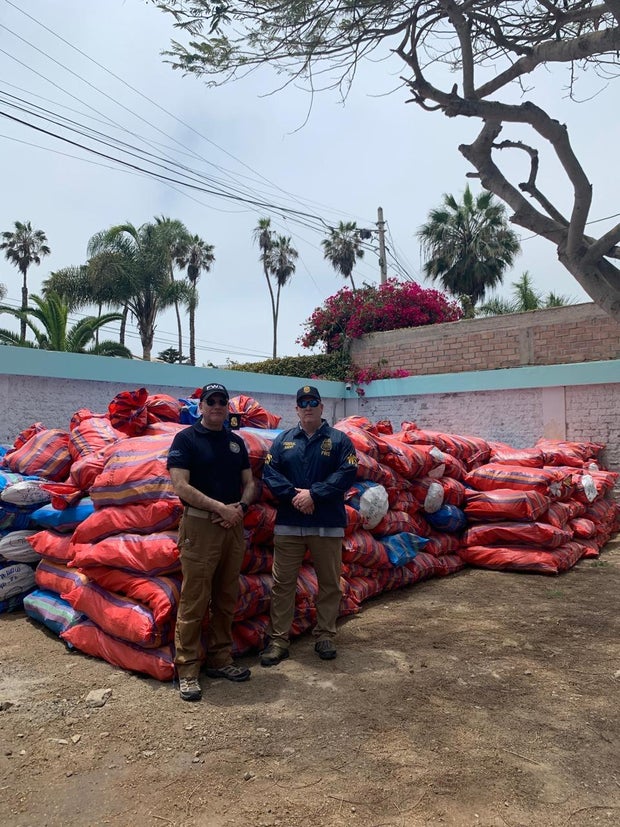10,000 sharks worth more than $11M caught in Peru’s biggest wildlife inspection

[ad_1]
US authorities have assisted the Peruvian government in seizing an estimated 10,000 Chinese sharks – one of the largest wildlife trafficking operations in Latin American history.
The bust, on November 10 in an industrial port outside Lima, led to the arrest of three men arrested in a dynamic criminal network involved in illegal fishing and wildlife, according to the United States Fish and Wildlife Service.
United States Embassy, Peru
The brutality behind shark fin tradery is well documented. Shark Finning often involves finning live sharks and throwing the mutants back into the ocean, where they die from blood loss, suffocation or suffocation. The practice is banned in many countries but persists due to weak enforcement and high profits.
Shark Fifs are valued in Chinese cuisine, especially shark fin soup, which is associated with status and celebration, according to nonprofit shark management. A container that can sell for $100 a container and continues to drive a profitable black market.
United States Embassy, Peru
Despite growing awareness and some regulatory crackdowns, global demand for Shark Fish remains strong. The United Nations estimates that the illegal trade in wild animals generates about $20 billion every year, which causes drugs and arms to be sold at a high level and in trouble.
“The billion-dollar fin and meat trade is driving the collapse of the shark and ray species. Now, serious action must be taken before it’s too late,” said the director of Shark and Ray News.
The operation is led by Peru’s organized crime division in the environment. The fins, valued at more than $11.2 million, are obtained from threatened species including blue sharks, blue sharks, pelagic sharks and common sharks.
Authorities say the criminal network bought FINS from Ecuadorian fishermen and forced them with fictitious documents claiming the catch came from Peruvian waters. When dried and stored in Callao, Peru, outside Lima, the Fins are prepared for export to China.
United States Embassy, Peru
“US Fisheries and Wildlife, in collaboration with the Peruvian National Police, is taking decisive action to destroy sharks illegally, for future generations,” Deputy Assistant Director of Legal Affairs at USFWS, told CBS News.
Sharks play an important role in maintaining Healthy Marine Ecosystems. As apex predators, their decline can cause washout effects, including collapse of coral reefs and fisheries. Many species of sharks produce less, making them more vulnerable to overexploitation.
While the crackdown marks a major victory for law enforcement, it also underscores the scale of the challenge. The black market of wildlife products continues to flourish, driven by international demand, fraud and limited scrutiny, according to the UN currently, 9.3 tons taken from Peru represent the Peruvian monument of the natural environment of the crime.






